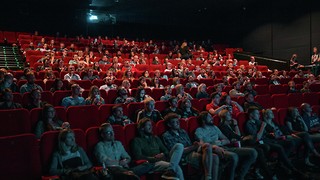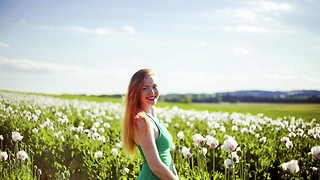‘My favourite memory?’ ‘That’s far too personal!’
Baroness Hale, the UK’s first and only female Supreme Court Justice, talked to Varsity before her speech at The Cambridge Union Society

Baroness Hale of Richmond has achieved many firsts in her life. She graduated from Girton College in law with a starred First, top of her year. She is the first, and only, female Supreme Court Justice. She’s clearly aware of her status as someone who has achieved something special but she wears it comfortably.
In person she is witty, sharp and incredibly warm and likeable. She’s the kind of person you want to be your grandmother. She’d bake with you on a Sunday before heading off to literally make law on Monday morning.
Her interests in family law and human rights cases, especially involving children, are well documented. She says of her favourite case: “The one I’m most proud of is a case called ZH (Tanzania) which is all about immigration and asylum decisions and the priority to be given to the interests of children. I’m quite proud of that one.”
“Obviously I am interested in equality and gender issues, family and welfare law because I spent my whole life working on it.”
Baroness Hale responds kindly to questions about the place of women. She inevitably hears the questions frequently, but she clearly still has a significant interest in the issue and is far from resigned. “When I was your age, the breakthroughs tended to be going on at the bottom: women being admitted to the Cambridge Union Society. Then I was the first woman Law Commissioner. But I think in recent years there have been women becoming CEOs of FTSE 100 companies and there are now women in very prominent positions running the media as opposed to being in the media.”
In today’s Eurosceptic age, judges are criticised consistently for the political ramifications of their decisions despite the fact that judges make decisions based on the evidence in front of them, and more importantly, on points of law. Parliament legislates its intentions. Judges, in theory at least, apply that law to questionable cases.
“Although we’re very unwise if we ignore the political and practical ramifications of our decisions, ultimately we have to make our decisions based on law. The judicial oath is a great thing,” Hale says.
Following her speech, a particularly opinionated member of the audience asks her what on earth the judges are doing applying European law in the UK. Her response is swift and edged with annoyance: “Exactly what Parliament has legislated for us to do!”
As such a phenomenal legal academic, and now judge, I’m curious to see what Baroness Hale would have done if the law had been closed to her. “I’d be a schoolteacher. Or maybe a university teacher. But if I hadn’t come here to read law, I would have wanted to read history. I don’t think I would have done as well at history though.”
Seeing Baroness Hale during her speech she is much the same as she is in person. It’s unusual, and a pleasant surprise, to see someone not freeze up or put on a façade when they are speaking in public. Her speech is succinct and she swiftly moves on to the question and answer section of the event.
The packed chamber at the Union, and the numerous questions, are testament to how popular Baroness Hale is as a public figure. Admittedly a significant portion of the audience are law students, but her speech was explicity designed to be both informative for lawyers and accessible for non-lawyers. Chatting before our interview she mentioned concerns about not boring lawyers and yet not seeming too esoteric for the students of other subjects.
Before I left our interview I asked Baroness Hale a few small questions. She doesn’t like to talk about her personal life but I wanted at least a couple of personal titbits:
“What’s your favourite colour?” “Blue.’’
“Who is your favourite person in the world?” “My husband and daughter?”
“What is your favourite meal?” “My husband does a delightful pomegranate pork roast, which I love.”
“What is your favourite memory?” “Oh no, that’s far too personal.”
And with a twinkle in her eye she’s off to charm a chamber of students
 News / Tompkins Table 2025: Trinity widens gap on Christ’s19 August 2025
News / Tompkins Table 2025: Trinity widens gap on Christ’s19 August 2025 Comment / A plague on your new-build houses18 August 2025
Comment / A plague on your new-build houses18 August 2025 News / Pro-Palestine activists spray-paint Barclays Eagle Labs18 August 2025
News / Pro-Palestine activists spray-paint Barclays Eagle Labs18 August 2025 News / Pro-Palestine activists urge new Chancellor to ‘condemn Israel’20 August 2025
News / Pro-Palestine activists urge new Chancellor to ‘condemn Israel’20 August 2025 News / Trinity sells O2 Arena lease for £90m12 August 2025
News / Trinity sells O2 Arena lease for £90m12 August 2025










